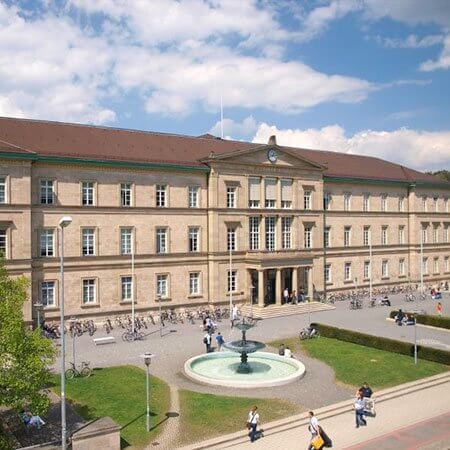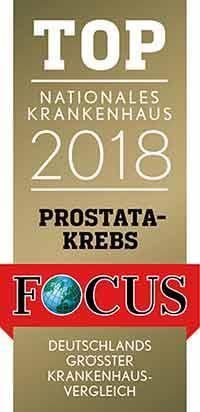A testicular yolk sac tumor is a germ cell tumor that is the most common type of testicular cancer in children. This tumor is less commonly found in adult men. While tumors in children can usually be successfully treated, in adults they are more aggressive, and it can be a more challenging task to cope with cancer. But still, doctors in Germany successfully cure most yolk sac tumors. German physicians not only help to beat cancer, but also maintain sexual and reproductive function and normal production of male hormones.
Content
- Surgical treatment
- Postoperative follow-up
- Chemotherapy
- Stem cell transplant
First of all, patients need a surgical procedure to remove the testicle. Some patients also require retroperitoneal lymph node removal surgery and chemotherapy.
You can undergo your treatment at one of the following hospitals: University Hospital of Ludwig Maximilian University of Munich, Urology Clinic Munich-Planegg, or University Hospital Ulm.
The Booking Health employees will take care of the organization of your trip. They will recommend a hospital and a doctor, help you to quickly make an appointment and prepare medical documents, help you to apply for a visa and come to the hospital, and control the cost of medical services. A personal medical coordinator will be in touch with you 24/7 during the entire period of your treatment.
Surgical treatment
Testicular yolk sac tumor treatment in Germany begins with surgery.
Inguinal orchiectomy is the main treatment for any testicular cancer, including yolk sac tumors. An incision is made above the pubis. The testicle is carefully taken from the scrotum and resected. Prior to this, the spermatic cord is tied up to avoid the spread of cancer cells through the blood vessels.
This is a non-traumatic surgical procedure, after which you do not need to recover for a long time. Only one testicle is removed, so a man retains his reproductive function. If the operation is performed in childhood, a child has normal sexual development, since the remaining testicle produces a sufficient amount of hormones. In adult men, a prosthesis may be placed in the scrotum instead of the removed testicle. It cannot produce hormones and ensure the maturation of spermatozoa, but it improves the aesthetic result of the surgical intervention and relieves the man of complexes.
Retroperitoneal lymph node dissection is a more complex surgical procedure involving the removal of lymph nodes in the retroperitoneal space. This operation is performed on all patients, starting with stage 2 cancer. Doctors remove lymph nodes to check them for metastases, evaluate whether chemotherapy will be helpful, and reduce the risk of a recurrence.
In most cases, lymph node dissection is performed through a large abdominal incision. In specialized centers in Germany, doctors perform lymph node resections using the laparoscopic technique, and in some hospitals, healthcare professionals use a robot-assisted system. These variants of the operation are less traumatic, since the intervention is done through short incisions. After laparoscopic operations, the rehabilitation period and hospital stay are shorter, the risk of complications is lower, and the aesthetic result is better.
Postoperative follow-up
Yolk sac tumors can sometimes recur. At the same time, the prognosis of the disease does not worsen, since repeated treatment usually allows patients to finally get rid of cancer. But it is important to detect a relapse in a timely manner, if any. To do this, a patient is regularly examined, and the less time has passed after the surgical treatment, the more often it is necessary to undergo diagnostics.
The following two methods are used to diagnose cancer recurrence:
- an AFP test once every 2 months, as this oncomarker is highly specific for a yolk sac tumor, and therefore, it allows doctors to detect cancer recurrence long before the manifestation of symptoms;
- a CT scan of the retroperitoneal space is required once every 4 months to detect a recurrence originating in the lymph nodes (this diagnostic procedure is not required if the lymph nodes were removed).
Chemotherapy
Chemotherapy can be prescribed after surgery in the following cases:
- a recurrence of a yolk sac tumor;
- elevated AFP levels after an orchiectomy;
- stage 3 (the last one) of the disease.
Typically, EP and BEP regimens are used, while the VIP regimen is not very common. A total of three or four cycles is required, depending on the indication for chemotherapy and the regimen used.
Stem cell transplant
Even if the tumor has recurred after surgery and cannot be treated with standard chemotherapy regimens, testicular cancer can still be cured. For this, doctors use high-dose chemotherapy and a stem cell transplant.
Yolk sac tumors usually do not affect the bone marrow. Therefore, doctors successfully carry out an autologous transplant, that is, patients are injected with their own stem cells. They are harvested in advance and frozen. High-dose chemotherapy is then carried out to destroy the cancer completely. This also destroys the bone marrow. It is for its restoration that stem cells are used. After their intravenous injection, the hematopoietic function will be restored after a few weeks.
A yolk sac tumor can be cured at any stage, even the most advanced one, if you receive high-level medical care. You are welcome to use the Booking Health service to find prices, compare the cost of treatment in different hospitals, and make your treatment appointment in a specialized center. Our specialists will help you to choose the most suitable clinics in Germany and organize your trip.
Authors:
The article was edited by medical experts, board-certified doctors Dr. Nadezhda Ivanisova and Dr. Sergey Pashchenko. For the treatment of the conditions referred to in the article, you must consult a doctor; the information in the article is not intended for self-medication!
Sources:
Cancer Research Institute
Healthline
MedicineNet




















